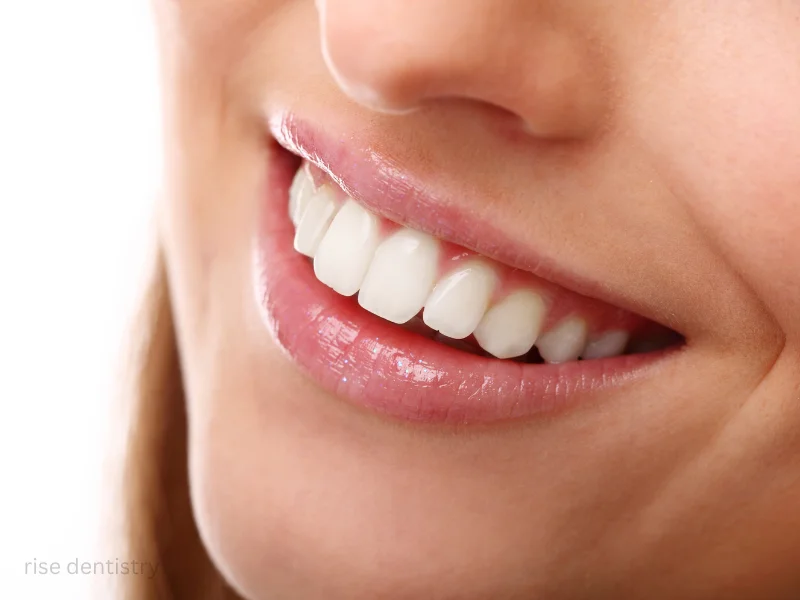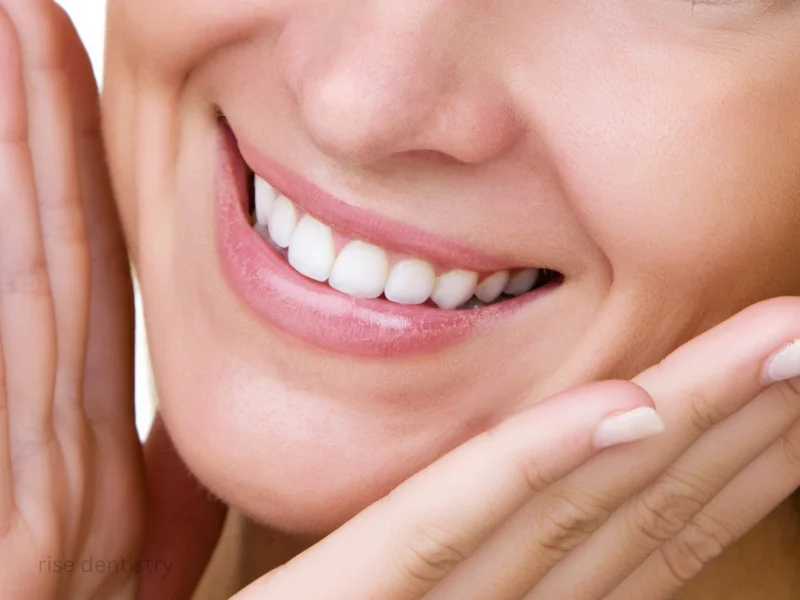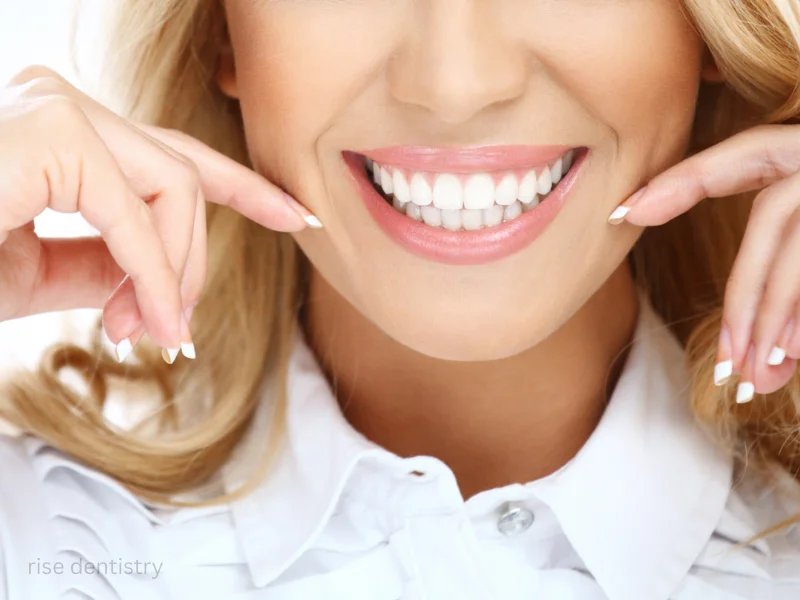
Keep your smile bright after teeth whitening—discover how long after treatment you can eat normally and maintain lasting results!
Teeth whitening is a popular cosmetic treatment that helps brighten your smile and boost confidence. Many people choose it for special occasions, photos, or everyday self-esteem. After whitening, teeth are more sensitive than usual, and proper care is essential. Eating after teeth whitening and teeth whitening eating afterwards are important to keep newly whitened teeth healthy and bright. Following simple post teeth whitening care guidelines protects your smile and helps the results last longer.
In the first 24–48 hours after treatment, teeth can feel sensitive and are more likely to stain from certain foods and drinks. Acidic and dark-colored foods, coffee, tea, and red wine can affect your results if consumed too soon. Practicing after teeth whitening care and being mindful of eating after whitening teeth ensures your smile remains dazzling and strong.

The first 24–48 hours after teeth whitening are the most important for protecting your smile. Teeth can feel sensitive and are more prone to stains. Following proper post teeth whitening care ensures your results last longer and your teeth stay healthy.
Many dentists recommend a “white diet” during this period. This includes light-colored foods that are gentle on teeth. Avoid dark drinks like coffee, tea, red wine, and sodas, as well as acidic sauces. These beverages can quickly affect your bright results.
When considering teeth whitening eating afterwards, eat safe foods like rice, chicken, and white fish. Clear liquids are ideal. Drinking water frequently and using mouthwash helps rinse away residue. Things to eat after teeth whitening should always be light-colored during this critical time. Mindful eating after teeth whitening in the first 48 hours keeps your smile bright and long-lasting.

After teeth whitening, avoiding certain foods is essential to keep your smile bright. High-pigment items can stain your teeth quickly. Drinks like coffee, tea, red wine, and dark sodas are common culprits. Many people overlook berries, tomato sauce, and colored sauces that also affect newly whitened teeth.
Using proper after teeth whitening care means avoiding these foods. Foods to avoid after whitening teeth and foods to avoid after teeth whitening include dark sauces, chocolate, and highly pigmented snacks. Smoking after teeth whitening can discolor teeth faster than expected. Acidic foods may cause tooth sensitivity and make teeth more prone to staining.
To prevent accidental stains, follow simple tips during meals. Use a straw when drinking colored beverages. Rinse your mouth with water or mouthwash after eating colored or acidic foods. Planning meals around foods to eat after teeth whitening helps maintain your dazzling smile longer. Incorporating safe eating habits ensures your teeth stay healthy and vibrant.

After teeth whitening, many people notice tooth sensitivity, which is normal and usually temporary. Sensitivity can affect how you eat and drink for the first few days. Your newly whitened teeth may feel uncomfortable with very hot or cold foods. Avoid extreme temperatures to prevent irritation. Even soft or regular food can feel uncomfortable if eaten too soon. Gentle eating helps your teeth adjust gradually after the whitening treatment.
Start with lukewarm foods and soft items like rice, yogurt, or cooked vegetables. Drink water frequently to rinse your mouth. Avoid biting directly into hard or crunchy foods initially. These steps make eating after whitening teeth easier while protecting your teeth. Following these guidelines supports your comfort and helps maintain your bright, healthy smile.

Good oral hygiene is essential for maintaining your bright, white smile. Brushing, flossing, and using mouthwash are critical steps for after teeth whitening care and post teeth whitening care.
Use a gentle toothpaste and soft-bristled toothbrush to protect enamel. Regular cleaning prevents stains from forming on newly whitened teeth. Saliva also plays a role in keeping teeth healthy by remineralizing enamel and washing away leftover food. Drinking water frequently supports saliva’s protective functions, reducing tooth sensitivity and maintaining whitening results.
For everyday care, brush at least twice daily and floss once a day. Avoid acidic or dark-colored foods immediately after meals. Following these simple habits ensures your smile stays bright, healthy, and long-lasting.

After the initial 48-hour “white diet,” you can slowly start eating after teeth whitening. Begin with light-colored, non-staining foods to protect your smile. When practicing teeth whitening eating afterwards, introduce darker foods and drinks gradually. Coffee, tea, red wine, and berries should be consumed in moderation. This approach helps avoid sudden stains on newly whitened teeth.
Mindful eating, like rinsing your mouth with water after meals, supports long-lasting results. Following these steps ensures your whitening treatment stays effective. Proper care during this transition period makes enjoying your favorite foods safe while protecting your teeth.


Schedule dental visits to keep your teeth healthy.

Brush twice daily with a whitening toothpaste.

Floss once daily to remove plaque between teeth.

Use mouthwash to kill bacteria and freshen breath.

Reduce coffee, tea, red wine, and dark sodas.

Stay away from tobacco products (smoking after teeth whitening) to protect teeth.

Drink water after meals to rinse your teeth.

Follow a regular oral hygiene routine.

Prefer light foods more often to protect whitening.

Practice careful eating to reduce staining risks.

Focus on rice, chicken, white fish, and clear liquids.
Avoid dark-colored drinks like coffee, tea, red wine, and sodas. Steer clear of berries, tomato sauce, and highly pigmented foods. These are foods to avoid after whitening teeth.
Mild tooth sensitivity is normal and usually lasts a few days. Using a soft toothbrush can help reduce discomfort.
Follow the white diet for the first 24–48 hours. Stick to light-colored foods to protect your newly whitened teeth.
Acidic foods and colored sauces can increase sensitivity and staining. Rinse with water or mouthwash after consuming small amounts.
You can return to your normal diet gradually after two days. Start with soft, light foods before heavier meals.

Following proper after teeth whitening care and post teeth whitening care at Rise Dentistry is key to keeping your smile bright and healthy. Brushing, flossing, and using mouthwash help maintain results. Watching what you eat in the first 48 hours protects your newly whitened teeth from stains and sensitivity.
Gradually returning to a normal diet while avoiding high-pigment and acidic foods extends whitening effects. Practicing these simple habits ensures a long-lasting, dazzling smile and boosts confidence every day. For more tips, learn about Teeth Whitening at Rise Dentistry to keep your smile healthy and bright.

EXCELLENTTrustindex verifies that the original source of the review is Google. "For years, I avoided the dentist due to my anxiety. Dr. Hassan sorathia and their team completely changed my perspective. The office has such a calming atmosphere, and the staff is compassionate and understanding. They explained every step of my treatment and made sure I was comfortable. I'm so grateful I found them and can now take care of my teeth without fear."Posted onTrustindex verifies that the original source of the review is Google. Rise was amazing! They extracted a wisdom tooth from me and the experience was completely pain free. Thank you so much!Posted onTrustindex verifies that the original source of the review is Google. I’m so grateful I found Dr. Sorathia and his wonderful staff at Rise Dentistry! From the moment I called, his office was incredibly accommodating and got me in immediately. He was professional, kind, and patient, and he truly understood my dental anxiety. I never felt rushed or pressured and he welcomed all my questions and explained each step of the process so I always knew what was happening. He made sure I understood all of my options, allowing me to make the most informed decision for my care. I left feeling comfortable, informed, and confident about my treatment. I will absolutely be returning to Dr. Sorathia and highly recommend him to anyone looking for a compassionate and thorough dentist.Posted onTrustindex verifies that the original source of the review is Google. I’m so glad I found this office! Staff is so kind and professional. They keep your comfort at the top of their priority list. Wish I had found them sooner! Can’t recommend this dentist enough!Posted onTrustindex verifies that the original source of the review is Google. Excellent Staff and Dr Sorathia very knowledgeable pleasant ambiance !Posted onTrustindex verifies that the original source of the review is Google. Had a great experience, no wait time, in and out. Everyone was friendly, informative and professional.Posted onTrustindex verifies that the original source of the review is Google. So refreshing to meet an HONEST dentist who isn’t trying to upsell you anything. Just tells you the facts doesn’t try to sway your opinion, just lays out the options based on facts and allows you to choose for yourself what works best for you. I definitely highly recommend!Posted onTrustindex verifies that the original source of the review is Google. Fantastic service! Had a bad tooth that was absolutely killing me for several days. I load going to the dentist so I don’t have a normal one. Set the appointment in the morning and got in that same day. The dentist explained saving versus extracting the tooth and 35 minutes later I was going home. He was extremely thorough and telling me what he was going to do and with the post office instructions. The staff both out front and his assistants were fantastic!! absolutely could not have asked for a better experience and he will be my dentist going forward.
© 2023-2025 Rise Dentistry. All rights reserved.